Snowball effect: Selling Alpine resorts to ambassadors
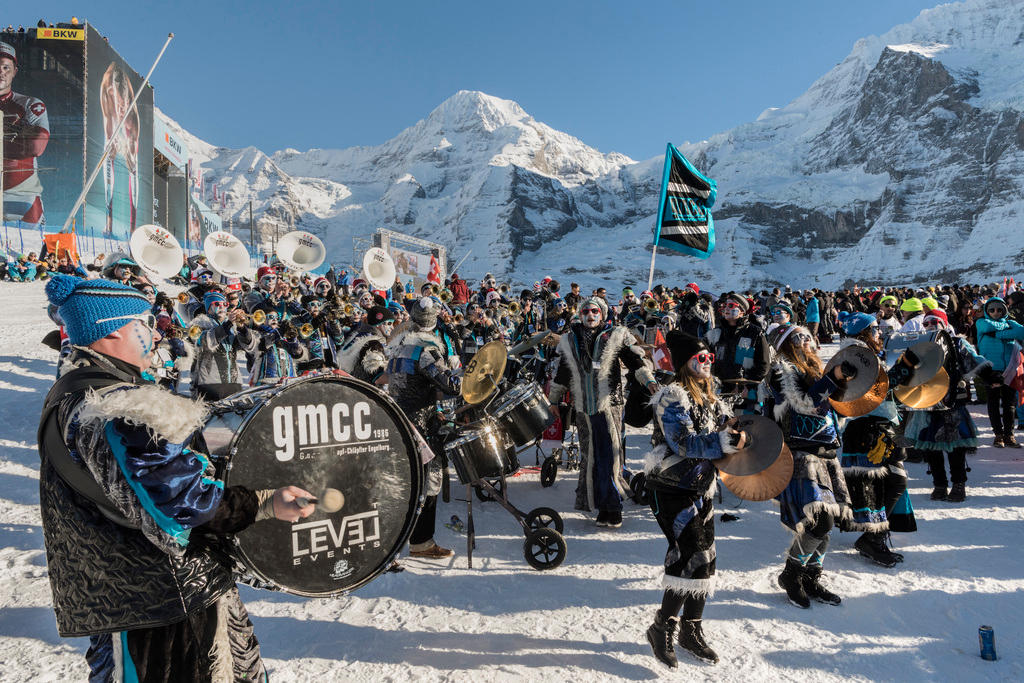
How can diplomats from foreign states become ambassadors for your country as well? In Wengen, the red carpet was rolled out for emissaries from dozens of nations. The mountain resort couldn’t have had a more captive audience.
“You can keep Alp cheese for four years,” Wengen’s tourism chief Rolf Wegmüller tells a group of foreign ambassadors at a local shop, pointing to cheeses which bear the names of the alpine pastures where they were made, as well as their age.
The small business in the village was one stop on the “Culinary Village Walk”, the most popular activity offered to the 104 emissaries and their partners on this day in mid-March.
Every other year, the Swiss foreign affairs ministry, at its expense, invites the entire diplomatic corps in Switzerland on a “Winter Day” outing. It’s a networking event and a chance for the representatives to get to know Swiss officials and staff better in an informal setting.
And it was a golden opportunity for Wengen External link– a resort best known as a destination for British and German holidaymakers – to sell its charms to representatives from further afield, especially smaller Asian countries that currently send few people abroad.
“We associate cheese with Switzerland,” notes North Korea’s Ambassador Han Tae SongExternal link as he sampled a piping hot portion of Raclette outside the cheese shop. Tae Song, who is usually in the headlines defending his state’s nuclear ambitions at the United Nations in Geneva, had a rare occasion to air his views on his country’s tourist industry.
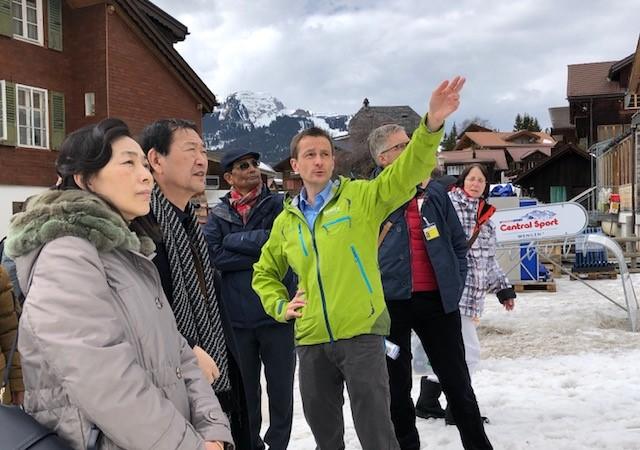
“Skiing is not yet popular in my country, but maybe in 10 years’ time it could be,” he says.
For Vietnam’s ambassador, Pham Hai Bang, it was a chance to experience the Swiss Alps in winter. “Our tourists know mostly Lucerne and Geneva, but not Wengen. I hope they will come in the future.”
“We present our village and we give them a great day,” Wegmüller explains, during an interview in his chalet office.
For years, bigger and more prosperous Asian countries have been sending tourists to this part of the Alps, the Jungfrau region, in droves. The local rail company, Jungfrau Railways, last year carried one million tourists – 70% from China, India, South Korea and Japan – to the Jungfraujoch, the area’s main tourist attraction known for its views of snowy peaks and the Alps’ longest glacier.
Wegmüller says the Jungfrau Railway’sExternal link success was due to the company’s far-sightedness, going to China to promote itself 20 years ago when there were many naysayers.
He said the vision of the company’s management to make Jungfraujoch a “must see” for future Chinese “whistle-stop” packages to Europe has paid off handsomely.
+ Read what it’s like behind the scenes at Europe’s highest railway station
The challenge for Wegmüller is to convince tourists riding up to the Jungfraujoch to get off the train in Wengen on their way back down, and leave some of their cash there. “Chinese tour groups are really hard because they travel very fast. Time is money and it’s hard to give them added value,” he says, noting the Chinese normally stay only one night in nearby Interlaken, where accommodation is often cheaper, before moving on to Paris or Munich.
His other task is finding a way to attract Asians from other countries, such as the Vietnamese.
Across the whole Jungfrau region, Asians account for about one in every four nights spent in tourist accommodation. And Chinese guest rates are expected to rise by double digits for the foreseeable future, according to regional tourist head Marc Ungerer.
Whistle-stop tours of Asia
A growing middle class across Asia with money to travel is one reason for the increase, but the Swiss tourist industry – taking a page out of the Jungfrau Railways’ book – is also very active in promoting Switzerland in Asia.
Swiss embassies in major capitals invite Asian tour operators and journalists to meet visiting Swiss tourist representatives on whistle-stop tours.
The Schilthorn CablewayExternal link, which operates the infrastructure and gondolas whisking tourists to the top of a mountain once the setting for a James Bond film, was among the regional companies on this year’s trip to Southeast Asia.
“Asian markets have more than doubled over the last five years, especially from China,” says Schilthorn CEO Christoph Egger. “In the next five years, we expect another substantial increase, since countries from South-East Asia like Indonesia, Malaysia, Thailand, Philippines and Vietnam re entering the worldwide travel market.”
Grindelwald External linkis the Jungfrau resort that attracts the highest number of Asians, rising from 24% of all overnight guests five years ago to 33% last year. The village has seen the largest increases of late coming from Taiwan and South Korea.
World Cup Lauberhorn
Ungerer says big, international sporting events are the best advertising. The World Cup alpine ski race, the Lauberhorn, which takes place on the slopes above Grindelwald and Wengen, generates worldwide television coverage of the area’s ski slopes, which are set against the backdrop of the iconic Eiger, Mönch and Jungfrau peaks.
The tourism official adds that the recent Winter Olympics in Pyeongchang also served the Jungfrau’s cause by raising awareness in Asia of winter sports, which can only benefit the Jungfrau region in future.
With fewer British and German tourists due to impact of Brexit and a strong Swiss franc, Wengen and its hotels have started to welcome more Asians, who accounted for up to 18% of all winter bookings this season at the village’s Victoria Lauberhorn hotel. Hotel manager Roger Wyrsch says that rises to 40% in summer.
It’s a similar story at hotels belonging to the “Wengen Classic Hotels” group. Owner Bettina Zinnert credits the popularity of the Jungfraujoch railway journey and the visibility of the Lauberhorn race. “The spill-over effect is pretty strong in summer. We have around 60% Asians staying with us,” she says, adding that winter is less attractive since skiing has yet to take hold among Asians.
But initial steps are being made to build a ski culture in that part of the world.
A ski instructor says his team that works the slopes above Wengen and Grindelwald has included a Chinese-speaking teacher during the high season the past two years. He’s required to manage up to 40 Asian customers a day, many eager to try skiing for the first time.
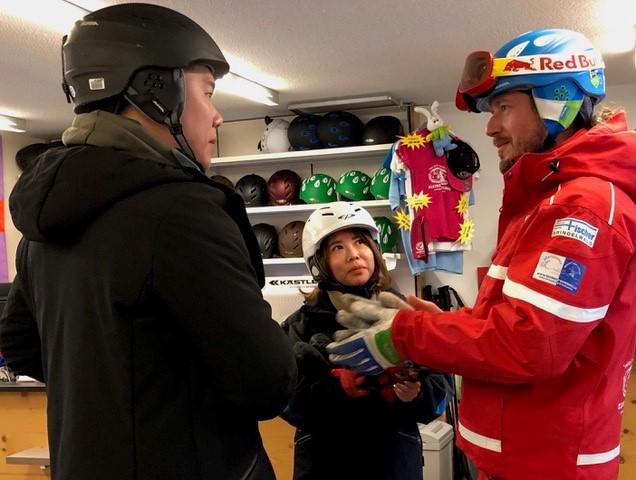
“I think the future is Asia,” instructor Christian Fuegi says.
The Jungfrau Railways is again leading the way. Construction begins this summer on a high-speed gondola, called the V-Bahn, which will connect Grindelwald to the station just below the Eiger glacier in a mere 15 minutes, cutting considerably the total travel time to the Jungfraujoch. “We’ll have 2,400 people going up every hour,” Jungfrau Railways CEO Urs Kessler says, in anticipation.
The charms of the region are evident to the foreign delegation. While most of the diplomats signed up for the village walk, a handful tried their luck at curling, and a much larger group – about 30 in all – were curious enough to have a go at skiing.
Attracting Asians to the region has been an uphill battle at times, but tourist officials have learned that once they’ve got them to the top of the mountain, it’s smooth skiing afterwards.
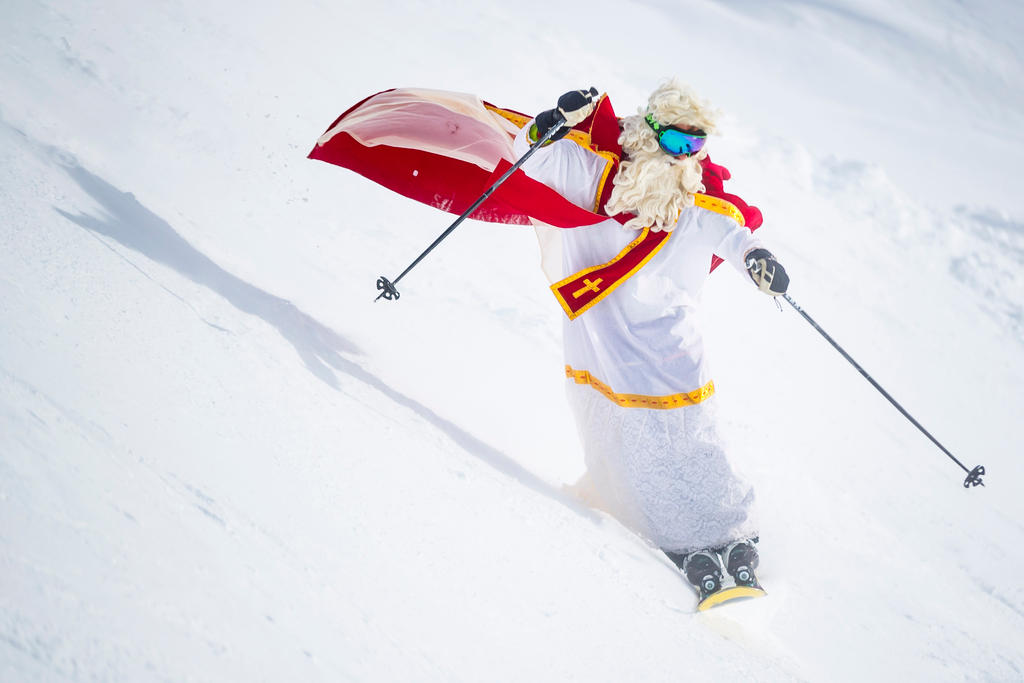
More
Report says Swiss ski resorts face bleak future

In compliance with the JTI standards
More: SWI swissinfo.ch certified by the Journalism Trust Initiative

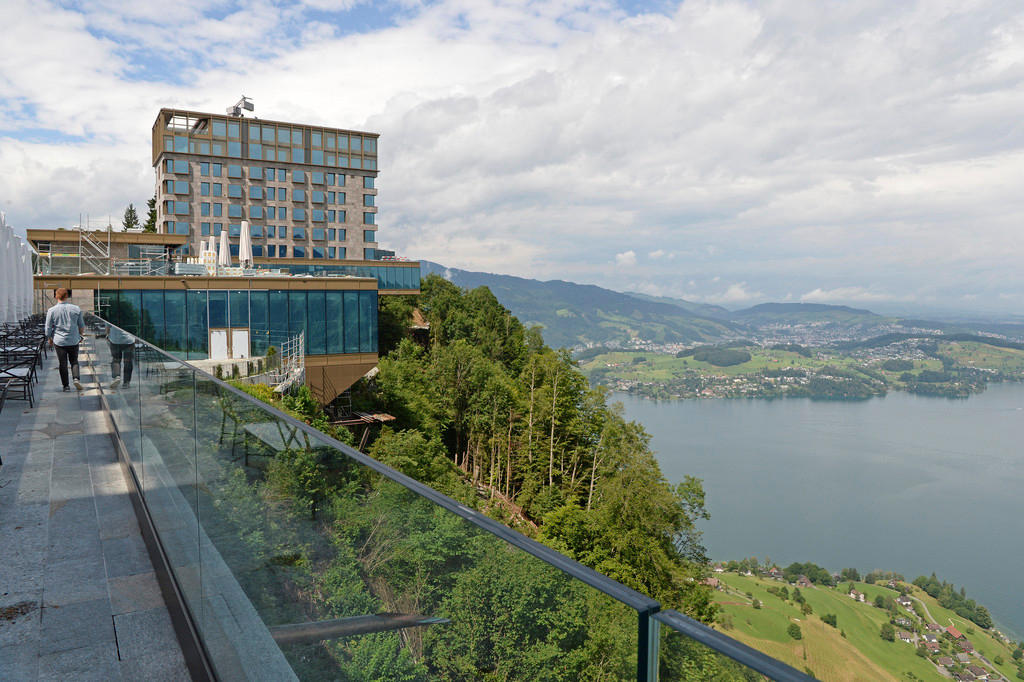
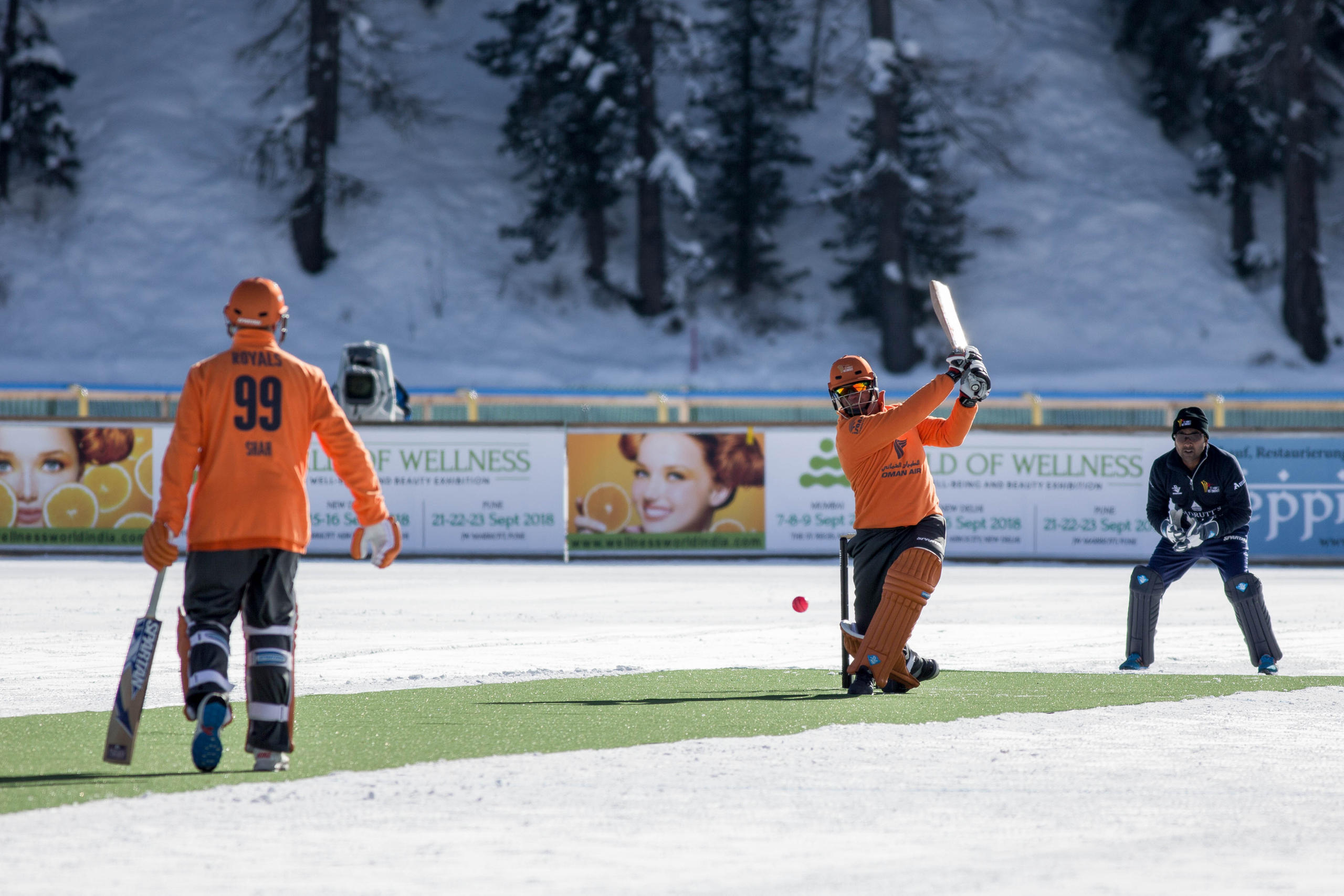
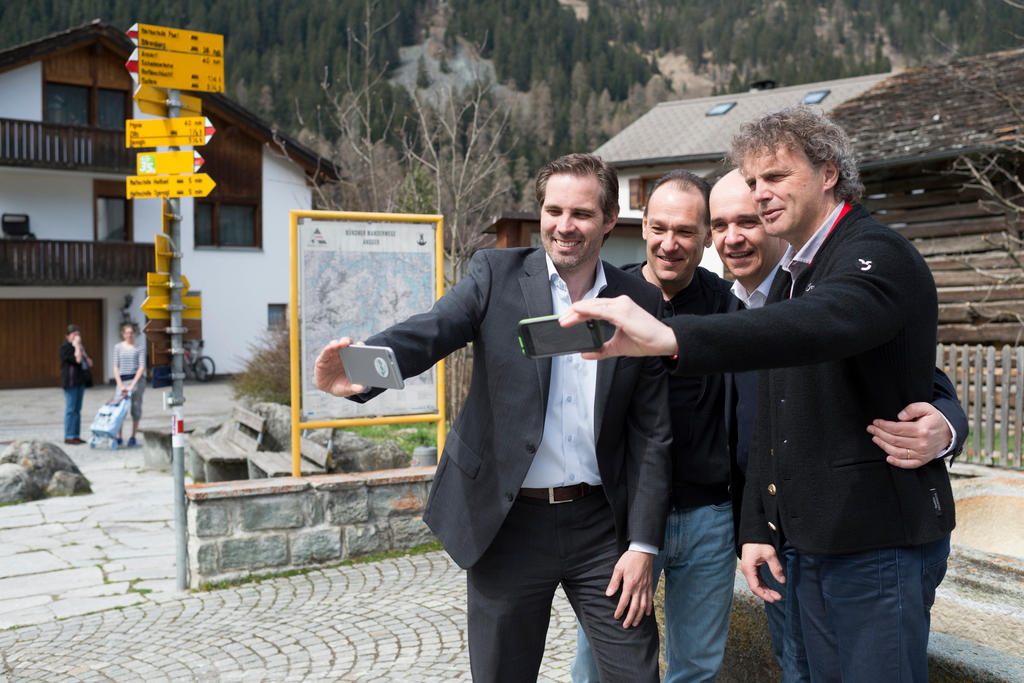
You can find an overview of ongoing debates with our journalists here. Please join us!
If you want to start a conversation about a topic raised in this article or want to report factual errors, email us at english@swissinfo.ch.